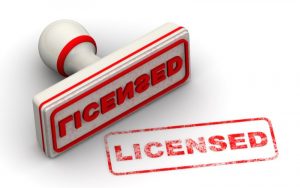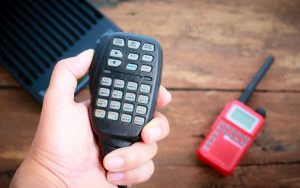Morse code was once the standard for international communication, used by navies, merchant marines, and amateur radio enthusiasts around the world.
But with the advent of modern forms of communication like text messages and email, is morse code still useful?
Even though it’s no longer as widely used as it once was, there are still some advantages to learning Morse code. For example, it can be a valuable backup communication method in case of an emergency, and can also be a fun hobby for ham radio operators.
Morse code has been around since the 1800s and was once the primary form of communication across long distances.
Morse code is still a popular method of communication.
It offers a reliable way to communicate over long distances with relatively low power outputs and is an internationally recognised system.
It is used by radio amateurs, military organisations and provides good backup when more modern systems fail.
How does morse code work?
Morse code works by using a series of dots and dashes, which are recognised by an experienced listener who can learn to easily identify the different patterns.
Individual letters in the alphabet are assigned combinations of dots and dashes.
A dash is three times longer than a dot.
The letter ‘a’ is one dot, whereas ‘n’ is one dash.
Different letters take varying numbers of consecutive dots or dashes to form. For example, ‘g’ takes two dots followed by two dashes, whereas ‘l’ is just short-short-long (three short signals).
This might seem confusing at first but it’s fairly straightforward once you understand how Morse code works.
The International Telecommunications Union-Radio Sector (ITU-R) provides a useful chart for converting between Morse code and text.
Is it still useful to learn morse code?
Although modern modes of communication like text messages and email are now more common, Morse code remains important.
Even though it’s no longer the primary method of international communication, it can still be useful in some situations.
For example, if mobile phone networks or the internet were to fail then Morse code would remain a reliable way to communicate across long distances with relatively low power outputs.
It is an internationally recognised system that can be easily sent using basic equipment and is understood by most people who have heard it before – although learning how to understand it takes time and practice.
Morse code also offers military organisations around the world a quick and easy method of sending encrypted information over radio frequencies without risking interception.
So even though modern modes of communication are becoming more common, it’s still important to know how to use Morse code in case things go wrong.
For amateur radio enthusiasts there is an additional benefit to learning Morse code – it can be a lot of fun and will add an extra dimension to your ham radio activities.
Is morse code hard to learn?
Although Morse code works in a fairly straightforward way, it can take practice to become fluent.
It’s best to start by learning the most commonly used letters and then move on to words and phrases before attempting longer messages.
There are plenty of websites that provide free resources for anyone wanting to learn Morse code.
Why is morse code still used when other means of communication like email and text messages are more common?
Morse code provides an easy way to communicate over long distances with relatively low power outputs – it’s even effective through the noise made by storms and can deal with poor propagation levels when other forms of radio, such as SSB, won’t function.
This is why it has proven useful to people in all walks of life, despite the development of other modern systems that are more common today.
Is morse code illegal for ham radio operators to use?
No, if you use the International Morse Code as opposed to any adaptations then amateur radio operators are allowed to do so.
The issues arise when you use a form of morse that is specific to your country, such as American morse code.
This form of ‘altered’ morse code is not permitted as it is not universal and not recognised internationally.
What equipment do you need for morse code?
You don’t need much in the way of equipment to learn morse code.
Most people will find it easier to practise on a computer using Morse software, before moving on to an actual piece of radio equipment like a hand-held transceiver.
For morse code operations you’ll need a morse key for connection to your transciever and perhaps some headphones to make listening easier and more accurate.
You can also buy hardware devices that will code your messages into morse before transmission and also decode incoming messages from morse into readable text.
Some modern transceivers also come with this functionality built in as standard.
Final Words
Morse code is still very much alive and well both within the amateur radio community and in other organisations such as the military.
While knowledge of morse is no longer a requirement of ham radio qualification in many countries, many amateur radio operators still enjoy the activity and experience regular, reliable, global communications when using morse.
Morse code is as relevant as ever and as new technologies make communication increasingly easy, it will continue to be developed and used by organisations that require reliable radio links over long distances.
Read Next
- Will a CB antenna work for a ham radio?
- Why do you need a ham radio license?
- What’s better ham radio or CB radio?
- What’s an affordable ham radio for beginners?
- What kind of range can I get with a 10W ham radio?
- What kind of antenna do you need for ham radio?










